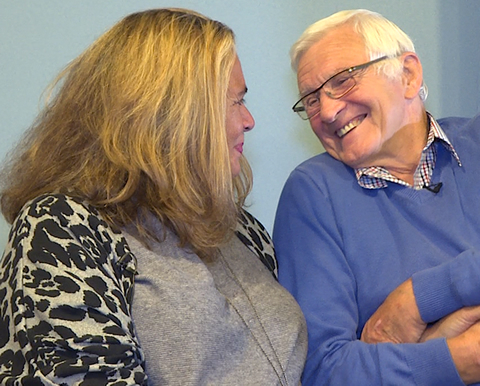Enabling People to Live Well with Dementia | Health and Well-being in Dementia Care



This session explores how to ensure optimal physical health and emotional well-being for people living with dementia. It will look at ways to prevent, and ensure early detection of, pain, falls, fatigue, dehydration and hunger. It describes ways to support the person to maintain personal hygiene and appearance. In promoting emotional well-being, it focuses on understanding behaviour as an expression of unmet need and the limited role for medication in helping someone who feels distressed.
Learning Objectives
By the end of this session you will be able to:
- Know how to support people living with dementia to maintain optimal physical health, personal hygiene and appearance
- Know how to improve nutrition and hydration and the meal time experience
- Discuss how you might prevent and ensure early detection of, pain, falls, fatigue, dehydration and hunger
- Know how to ensure optimal wellbeing for the person living with dementia by recognising emotional distress as an expression of unmet need and providing access to a range of community service and psychosocial interventions
- Understand the role of family in ensuing optimal physical and mental health
In this session, we will explore the need for strategies to promote health and well-being amongst people living with dementia and consider how family members can be included in such measures.
This session has been mapped to the Dementia Training Standards Framework and is designed to support the Dementia Action Alliance Dementia Statements.
Before commencing this session you may wish to:
- Complete Module 1 - Introduction to Living with Dementia/Dementia Awareness (407-0030)
Catherine is a Research Fellow at the School of Dementia Studies, University of Bradford. She is currently working on a National Institute for Health Research funded project about improving health and reducing hospitalisations for residents in care homes.
Catherine’s research interests are in the areas of healthy ageing, families, care and older people. She has been involved with projects in the areas of: health of older people in care homes, family carers, older people and technology, loneliness and older people, ageing and intergenerational relationships.
Catherine has a BA in Sociology and Social Policy from the University of York, an MA in Social Research from the University of Leeds and a PhD in Sociology and Social Policy from the University of Leeds in 2014.


Alan is currently working on an NIHR-funded project investigating ways of improving health and reducing hospitalisations in care homes at the School of Dementia Studies, University of Bradford. He is a mixed methods researcher, with primary interests in healthy ageing, care of vulnerable populations, memory and perception. He has experience of a diverse range of fields and techniques, including wet-lab based neuroscience, human behavioural studies, health economic analysis, project management and provision of statistical support.
Past research includes studies on a novel model of memory consolidation; on perceptual learning in a clinical population; and analysis of behaviour related to misuse of prescription medication. More recently he has spent several years working for the UK and Welsh Governments, providing research and statistical expertise on major economic and social inclusion programs (respectively).


- Anaesthesia Fundamentals | Physiology | Visceral P...
- Posted By eIntegrity Healthcare e-Learning
- Posted Date: 2025-01-11
- Location:Online
- This session describes the clinical features of visceral pain and neuropathic pain, and contrasts these with somatic pain. The neurological pathway is discussed and the principle of central sensitization.
- Anaesthesia Fundamentals | Physiology | Pain - Per...
- Posted By eIntegrity Healthcare e-Learning
- Posted Date: 2025-01-11
- Location:Online
- This session works through the peripheral and central mechanisms of pain.
- Anaesthesia Fundamentals | Physiology | Neurologic...
- Posted By eIntegrity Healthcare e-Learning
- Posted Date: 2025-01-11
- Location:Online
- The session covers the organization of the spinal cord for motor functions, the types of motor neurones, the structure and function of muscle spindles and Golgi tendon organs, and the muscle stretch reflex, flexor and crossed extensor reflexes.
- Anaesthesia Fundamentals | Physiology | Autonomic ...
- Posted By eIntegrity Healthcare e-Learning
- Posted Date: 2025-01-11
- Location:Online
- This session summarises the structure and function of the autonomic nervous system.
- Anaesthesia Fundamentals | Physiology | The Brain
- Posted By eIntegrity Healthcare e-Learning
- Posted Date: 2025-01-11
- Location:Online
- Â This session covers the functional physiological divisions of the brain, the regulation of blood flow and physiology of cerebrospinal fluid.






